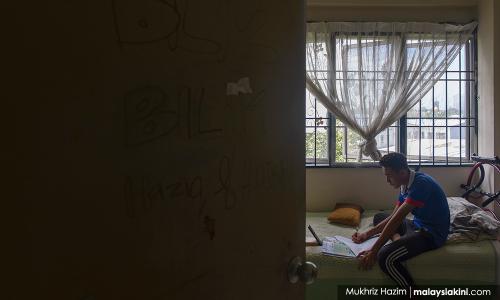LETTER | Reforms necessary for higher education recovery
LETTER | Recently, the Higher Education Ministry (MOHE) announced that a study will be conducted on the effectiveness of online learning and teaching (PdPR). While this is a laudable effort, it is most surprising that the study to improve the learning process is only conducted after more than a year of battling the pandemic.
This demonstrates that policymakers seem to display no sense of urgency for the disruptions experienced in higher education. Time and again, flip-flop decisions on the opening and closing of higher education institutions (HEI) made at the very last minute have left many students and parents anxious, disappointed and frustrated. Minimal progress is also seen in programmes to increase access to digital devices, such as the financial loan initiative under the MyRinggit-i COMSIS Scheme for the purchase of laptops by HEI students.
As Malaysia embarks on a journey of recovery across economic sectors, there must be a proper strategy in place for the restoration of higher education. This pandemic is an opportunity for us to press the reset button on Malaysia’s higher education sector.
A new policy paper titled “Building Resilience in Malaysian Higher Education” authored by Fariq Sazuki, Benedict Weerasena, Abel Benjamin Lim (economists of Bait Al Amanah) and Dr Abdul Razak Ahmad (founding director of Bait Al Amanah) highlights the need to accelerate the digital revolution to transform HEIs.
The unprecedented pandemic has forced HEIs to make a drastic transition to distance learning. Malaysia, similar to other countries, was not fully prepared in terms of readiness for the online learning approach. There is still more room for improvement to fully digitalise resources, stabilise internet connectivity and develop a comprehensive online learning platform. In addition, overcoming the challenges of the current online learning system does not only involve providing the necessary digital tools, but also includes flexibility in academic calendar and assessment policies.
In the long term, it is highly important to revive internationalisation strategies to boost Malaysia’s attractiveness as an international education hub. This involves favourable policies such as flexibility in admission regulations, credit transfers and extension of study visas for international students during the pandemic.
More importantly, reform in immigration policies is highly important to retain the best talents for productive economic growth, especially in sectors with a shortage of skilled human capital. With a substantial number of post-graduate students from Asean and developing countries, Malaysia stands to gain from the contribution of the best brains of the Global South.
Concrete steps are needed to build a future-ready higher education sector. Malaysia needs a National Recovery Plan for Higher Education, which also encompasses medium- to long-term strategies moving forward in the new normal. This recovery plan should advocate for greater autonomy for the leadership of HEIs to decide the best approach and timing to reopen their respective institutions. This decision should be made based on the travel restrictions affecting student travel, the Covid-19 positivity rate in the respective state, and the readiness of each university, among others.
With their wealth of knowledge and scientific research, HEIs should explore their true potential as the vanguard of fresh insight in this post-pandemic world. This is in line with their role as a research centre to understand and advance, a teaching body to preserve and disseminate, and as a service point to connect knowledge to society.
Moreover, HEIs should capitalise on the increasing demand for upskilling and reskilling by offering innovative and highly adaptive short online academic courses. It is time for HEIs across Malaysia to play a stronger role in promoting lifelong learning, instead of the traditional mindset of once-and-done learning.
In conclusion, transformational changes and reforms are crucial to build greater resilience in higher education. An exciting future awaits as HEIs plan towards embracing the potential of lifelong learning and developing a student-centric ecosystem in this new era.
* BAIT AL AMANAH (House of Trust) is an independent research institute which helps improve policy and decision-making processes through sound and multidisciplinary research and analysis. Bait Al Amanah also provides consulting services in political and economic risk, leadership, social development and sustainability, and media, big data, and technology.
The views expressed here are those of the author/contributor and do not necessarily represent the views of Malaysiakini.
RM12.50 / month
- Unlimited access to award-winning journalism
- Comment and share your opinions on all our articles
- Gift interesting stories to your friends
- Tax deductable
